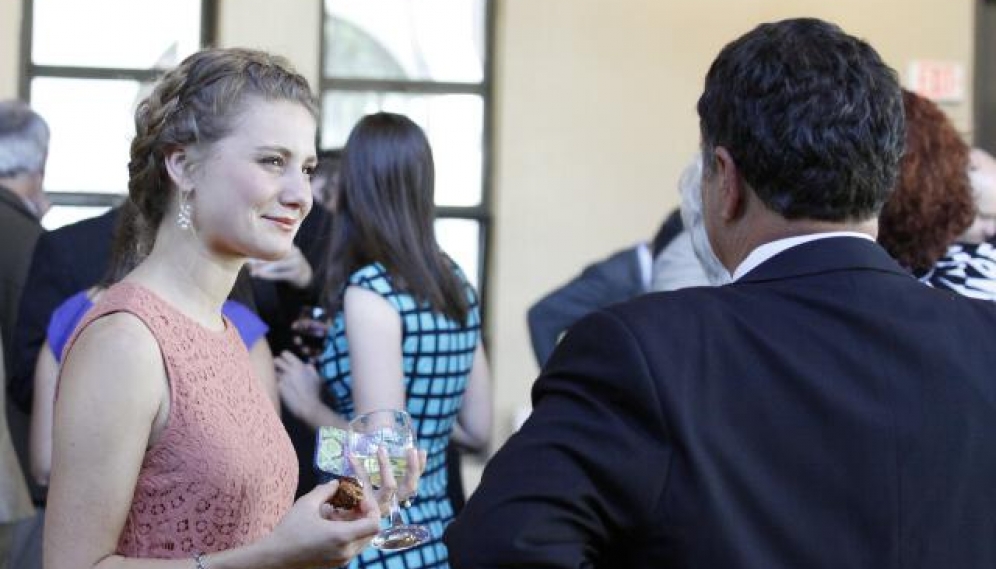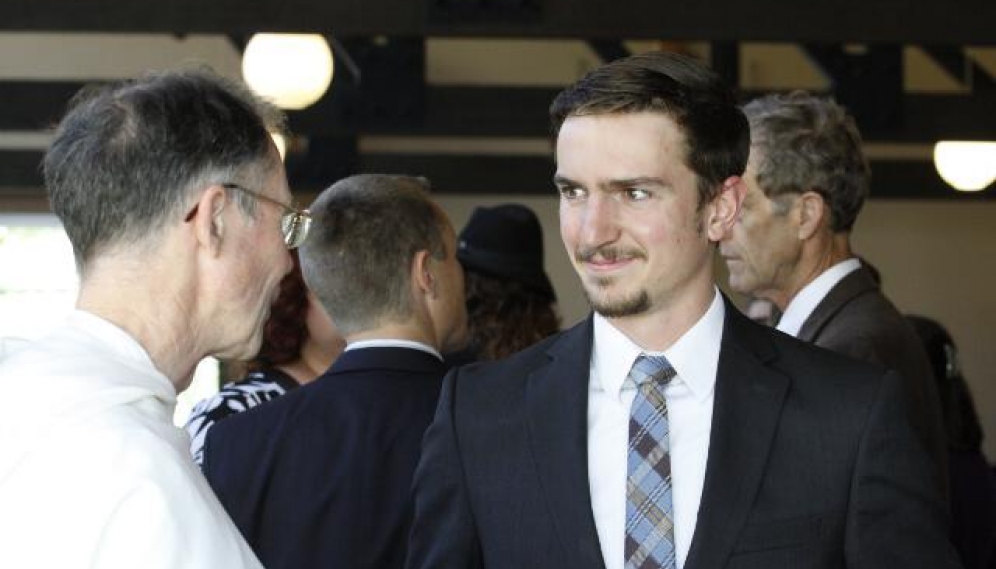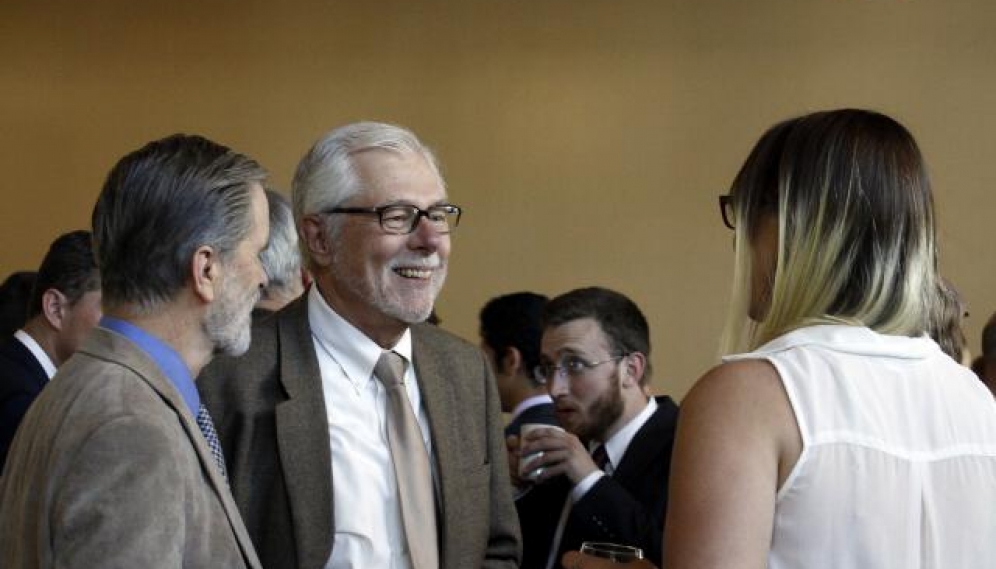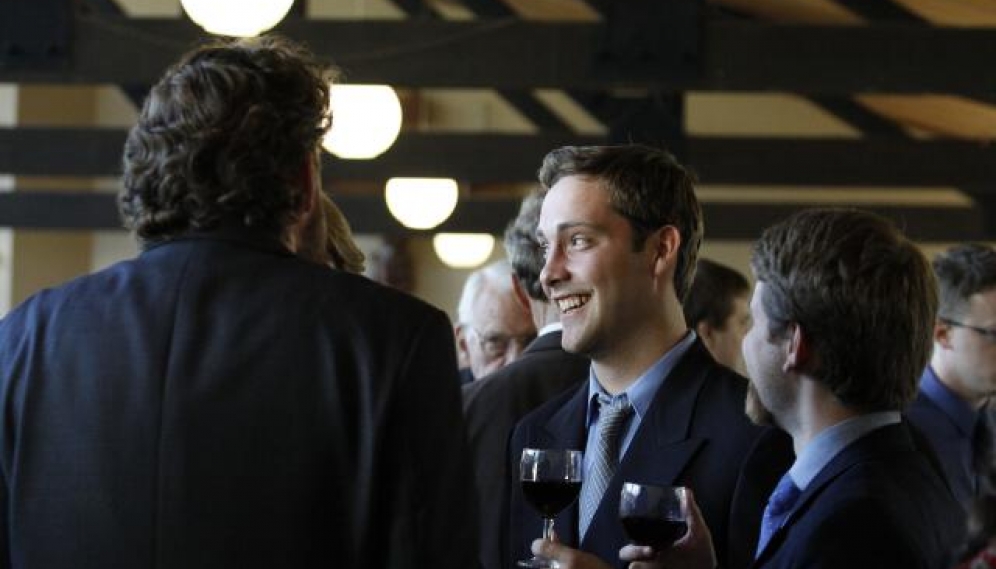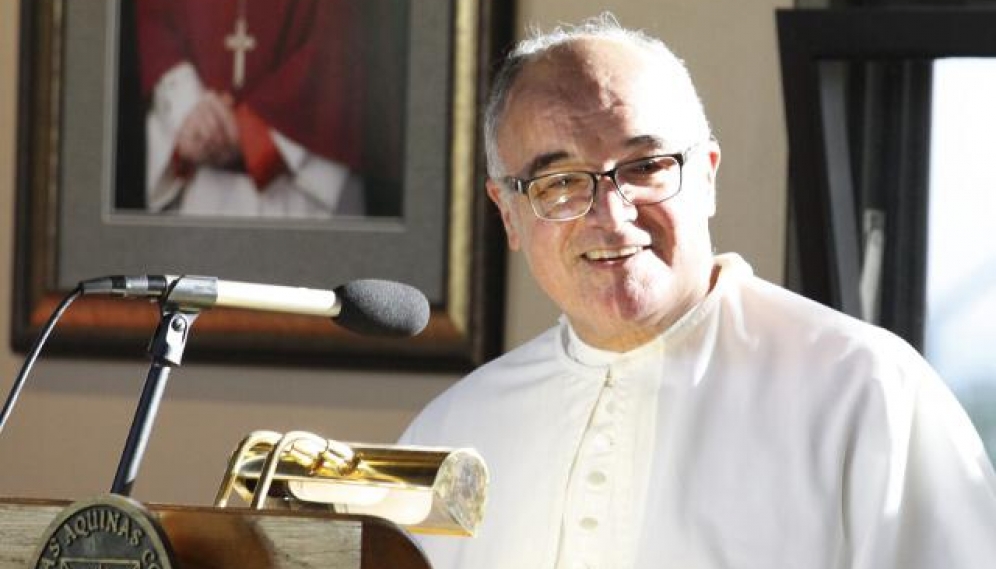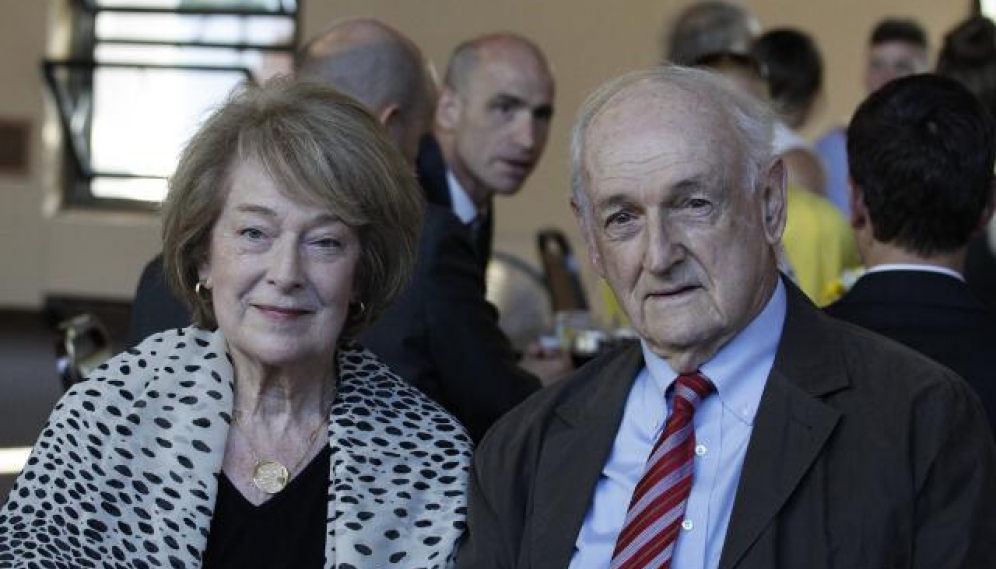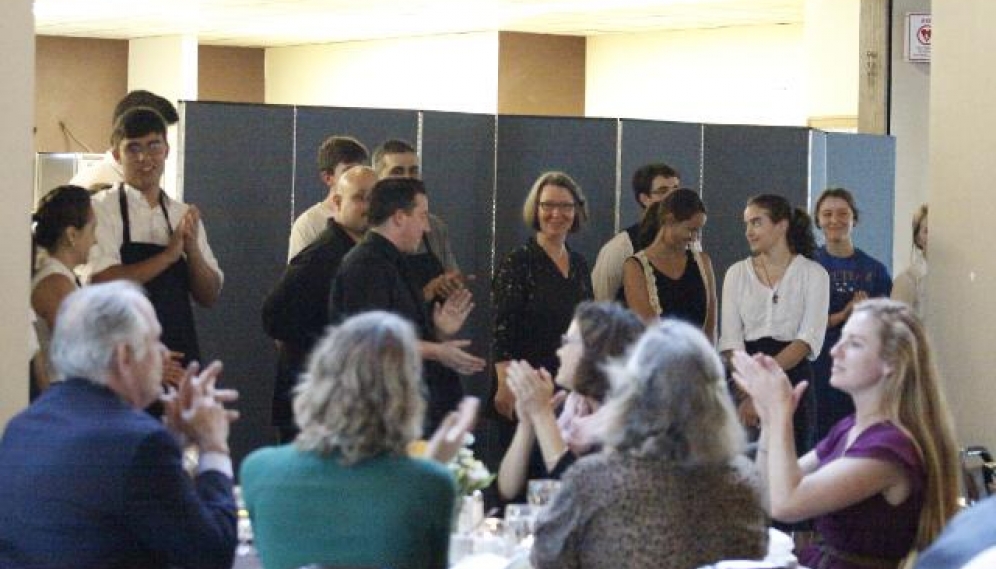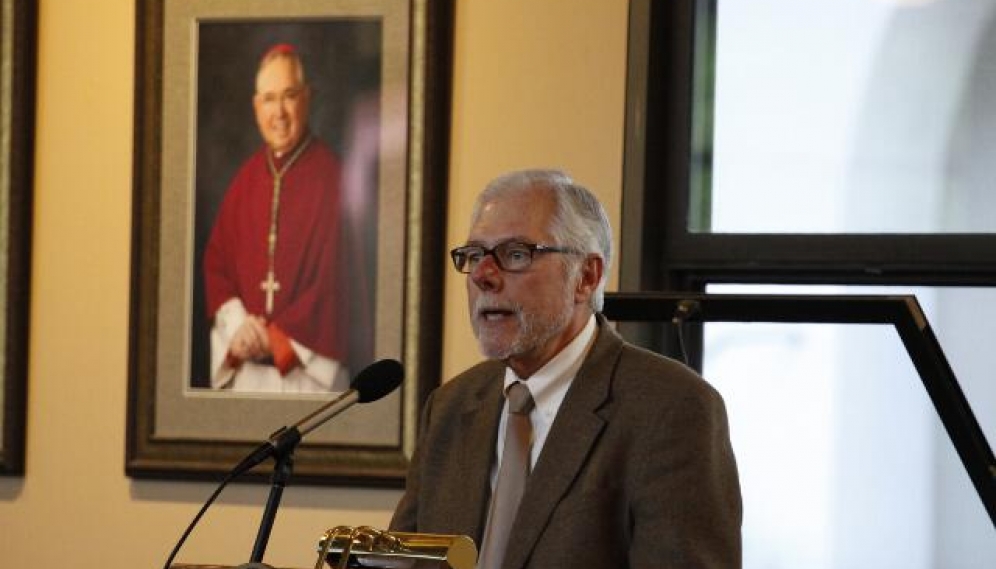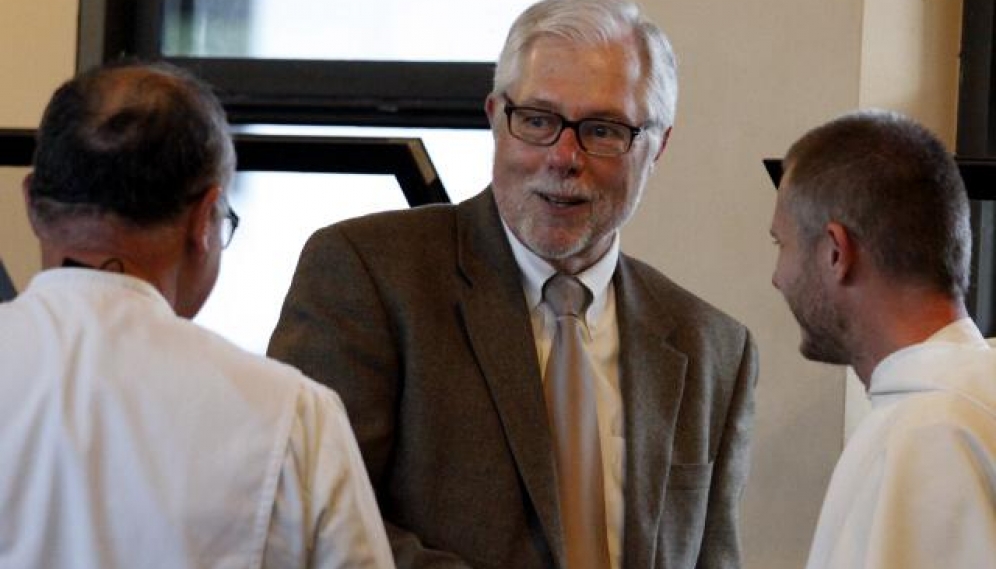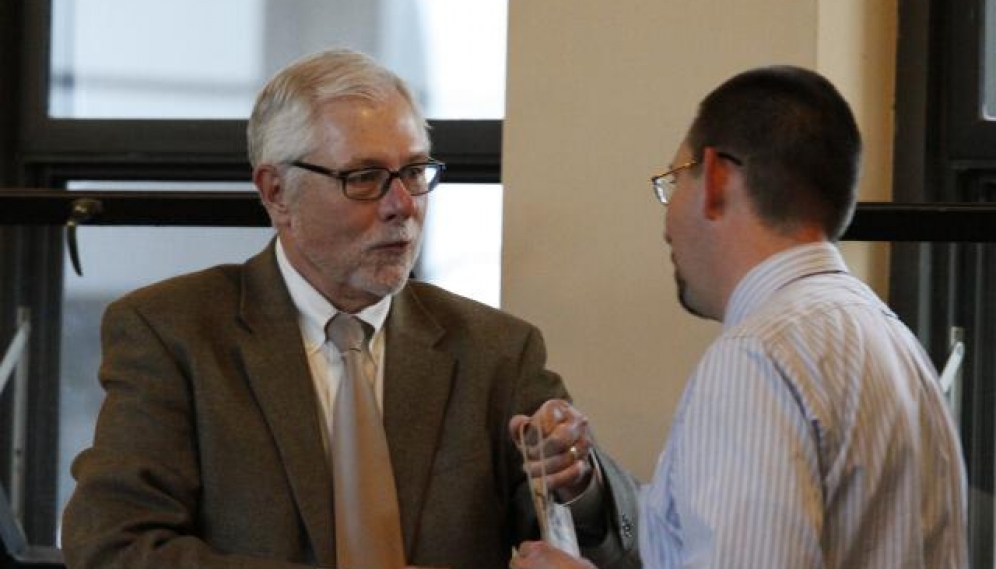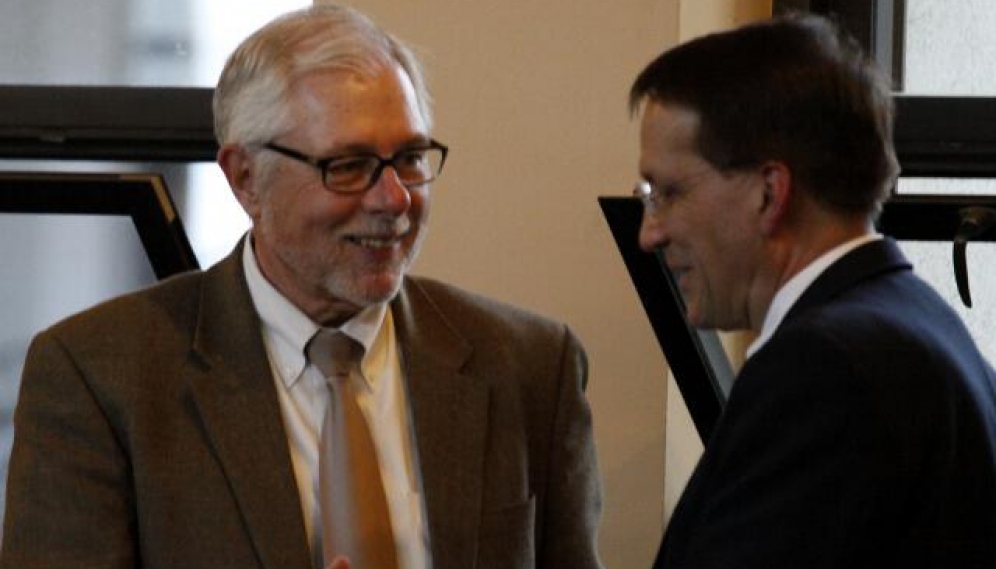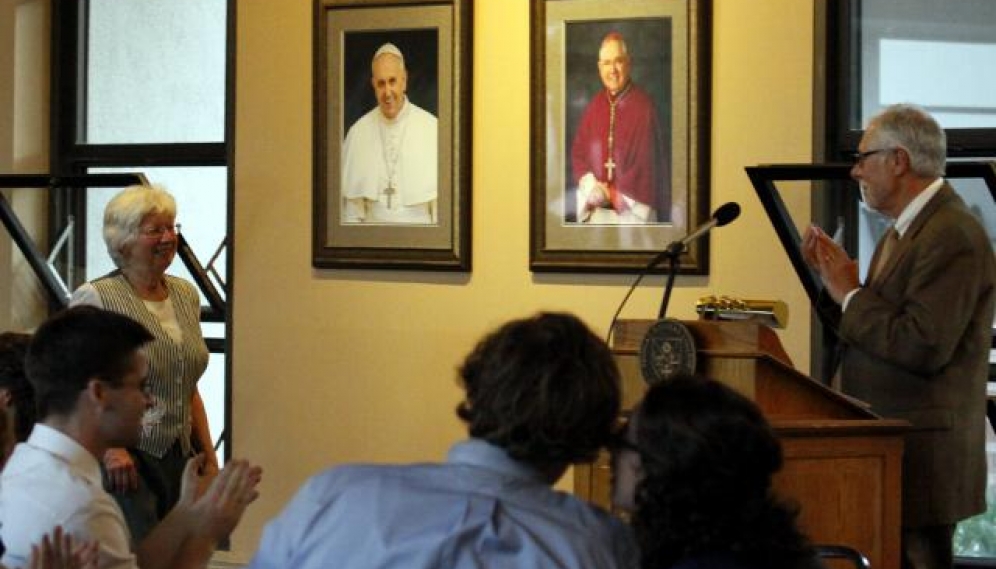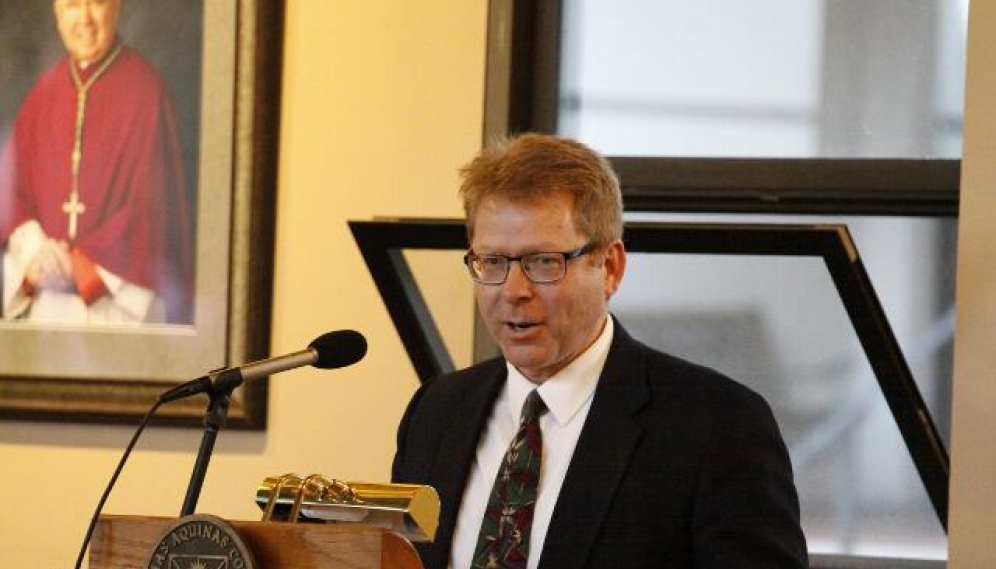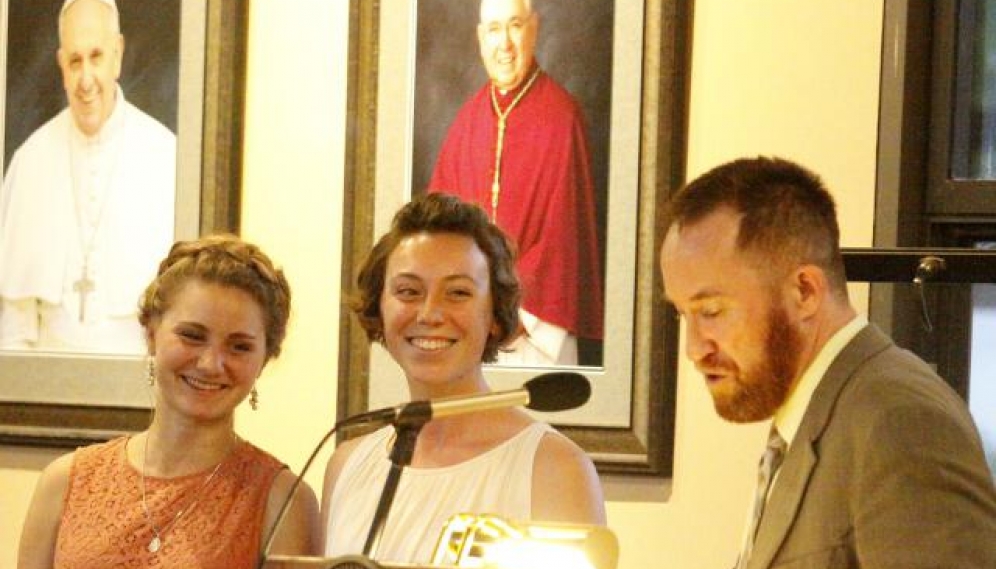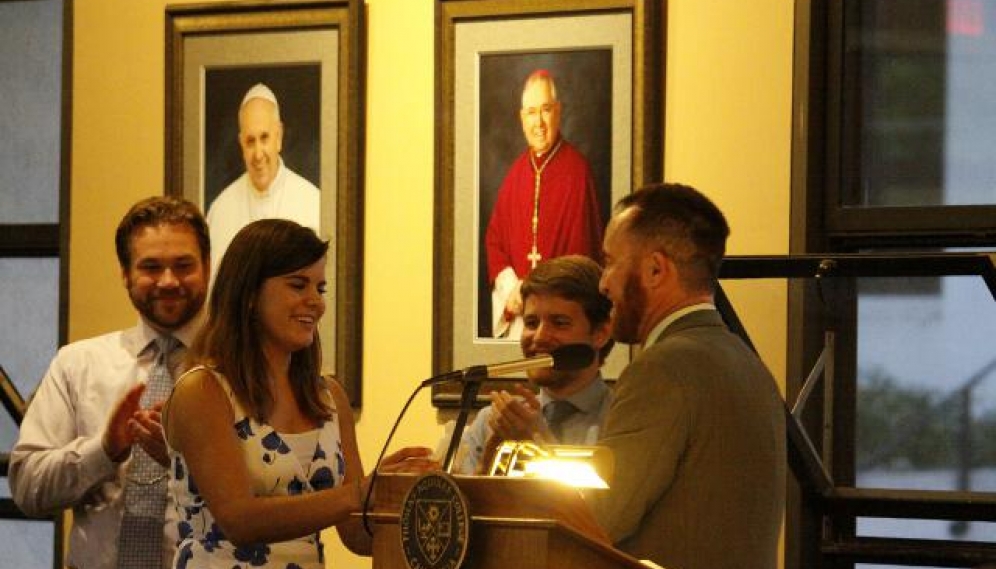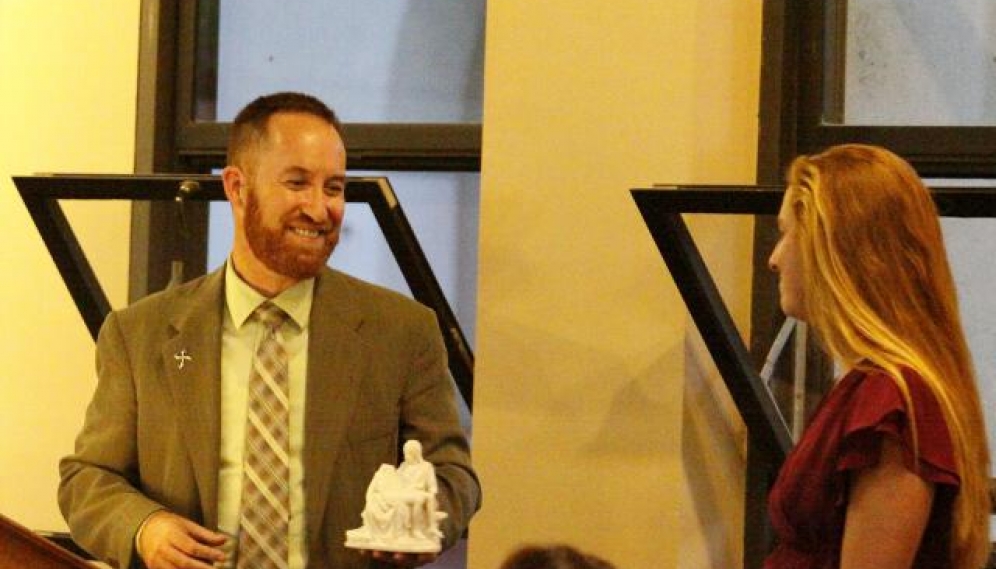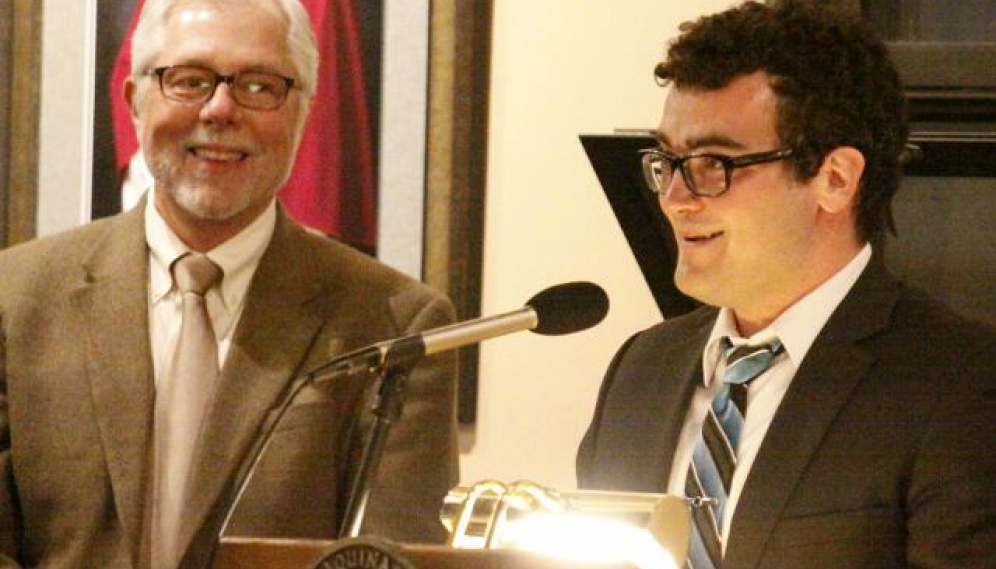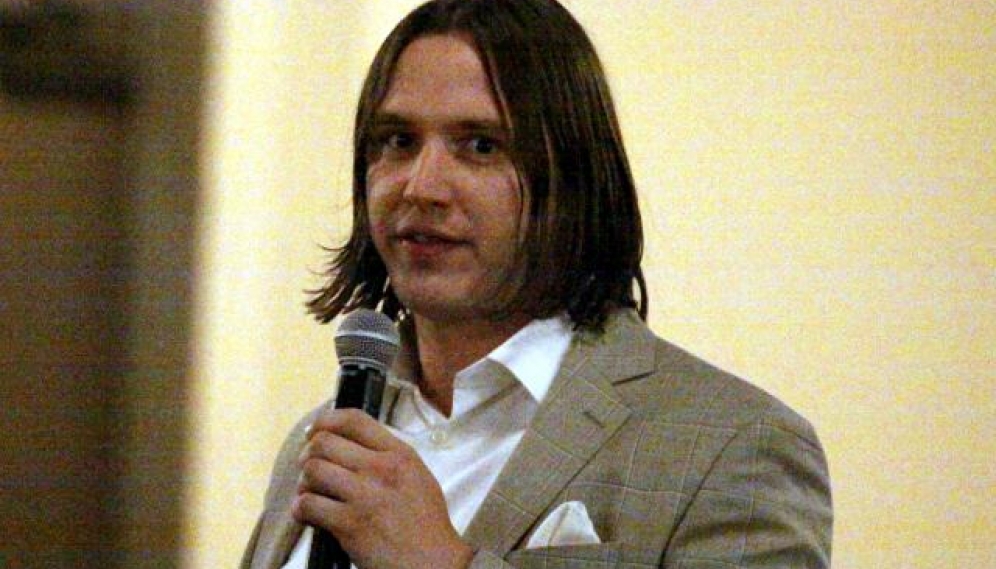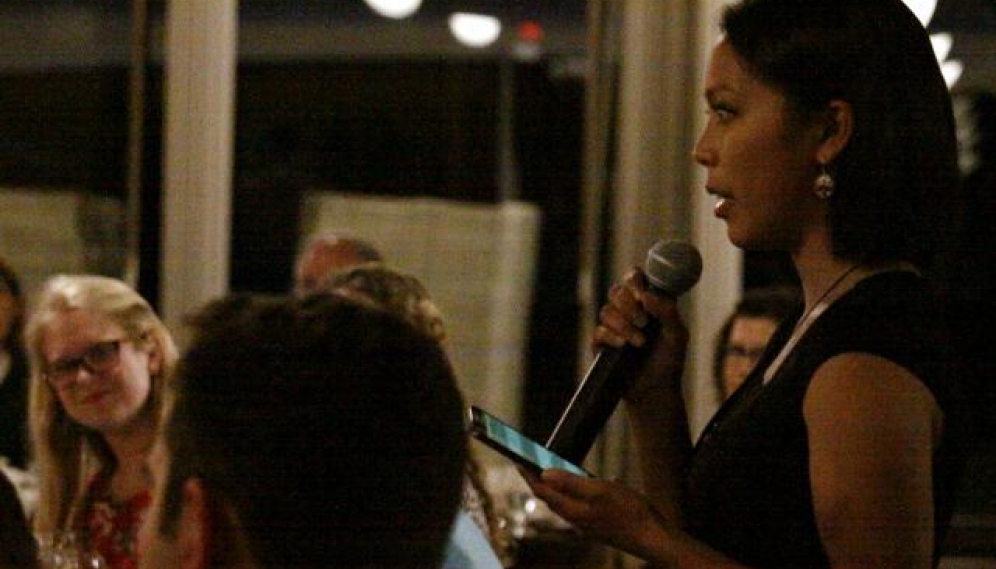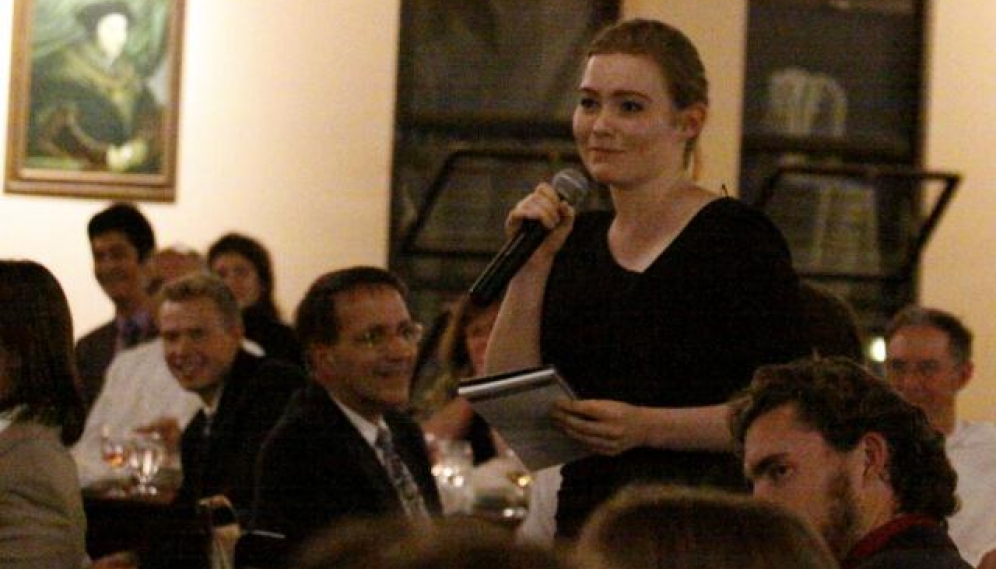- Home
-
About
 Fidelity & Excellence
Fidelity & ExcellenceThomas Aquinas College is unique among American colleges and universities, offering a faithfully Catholic education comprised entirely of the Great Books and classroom discussions.
-
A Liberating Education
 Truth Matters
Truth MattersTruth, and nothing less, sets men free; and because truth is both natural and supernatural, the College’s curriculum aims at both natural and divine wisdom.
-
A Catholic Life
 Under the Light of Faith
Under the Light of FaithThe intellectual tradition and moral teachings of the Catholic Church infuse the whole life of Thomas Aquinas College, illuminating the curriculum and the community alike.
-
Admission & Aid
 Is TAC Right for You?
Is TAC Right for You?Do you enjoy grappling with complex questions? Are you willing to engage in discussions about difficult concepts, with the truth as your ultimate goal?
-
Students & Parents
 Mind, Body & Spirit
Mind, Body & SpiritThere is always something to do at TAC — something worthwhile, something fulfilling, and something geared toward ever-greater spiritual and intellectual growth.
-
Alumni & Careers
 What Can You Do with a Liberal Education?
What Can You Do with a Liberal Education?Nothing speaks more to the versatility of the College’s academic program than the good that our alumni are doing throughout the Church and the world.
- Search
- Giving
The President’s Dinner 2016: Remarks and Slideshow
Note: Each year the president of Thomas Aquinas College hosts a dinner on the Wednesday before Commencement as a chance for members of the faculty and staff to bid farewell to the graduating class. The president, dean, and assistant dean all speak to the Seniors and, customarily, the Seniors present a gift to the College. Below are President Michael F. McLean’s remarks and a photographic slideshow from this year’s dinner.
Address to the Class of 2016
By Dr. Michael F. McLean
President, Thomas Aquinas College
May 12, 2016
I want to center my remarks this evening on Robert Cardinal Sarah, who was born in Guinea, Africa in 1945, was baptized by a Holy Ghost father in 1947 and ordained a priest by another Holy Ghost father in 1969. At the age of 34 he became the youngest bishop in the Catholic Church when Pope St. John Paul II appointed him the Bishop of Conakry, Guinea, in 1979. Pope Benedict XVI named him cardinal in 2010 and Pope Francis made him Prefect of the Congregation for Divine Worship and the Discipline of the Sacraments in 2014.
Cardinal Sarah says of his upbringing that “the Church in Guinea experienced a terrible Way of the Cross. The entire young nation was transformed into a valley of tears … how can we forget the atrocious crimes of our leader, the Marxist Sekou Toure — for example, the Boiro camp, where many prisoners died after being brutally tortured, humiliated, and eliminated in the name of a revolution orchestrated by a bloodthirsty ruler who was obsessed by the specter of conspiracy?”
Reflecting on this experience, Cardinal Sarah adds, in words that speak to us all: “the physical experience of the Cross is a grace that is absolutely necessary for our growth in the Christian faith and a providential opportunity to conform ourselves to Christ so as to enter into the depths of the ineffable.”
I mention Cardinal Sarah because he is today a widely admired and respected Churchman. I met him briefly on a recent trip to Rome, where I had the occasion to attend an inspiring colloquium on the sacraments given by him and the College’s good friend, Cardinal Burke. I have also recently been reading his critically acclaimed book, God or Nothing, a combination of autobiography, personal reflection, and profound theological meditation. I have been deeply impressed with Cardinal Sarah’s understanding of the challenges and opportunities facing contemporary Catholics. Tonight provides a good occasion on which to give you a very quick sense of his views and to share with you some of his wisdom as you celebrate your impending graduation from Thomas Aquinas College and contemplate making your way in the world.
Atheism is a recurring theme in the book. In Cardinal Sarah’s words:
Today the West lives as if God does not exist … the West decided to distance itself from the Christian faith under the influence of the Enlightenment philosophers and the resulting political currents. Although Christian communities exist that are still vital and missionary, most Western populations now regard Jesus as a sort of idea but not as an event, much less as a person whom the apostles and many witnesses of the Gospel met and loved and to whom they consecrated their lives. … God no longer interests anyone. He is dead, and his departure leaves us indifferent.
While this report from the front is not exactly encouraging, your reading and discussion of the Enlightenment philosophers has helped you see the intellectual roots of contemporary atheism and has provided you with some resources with which to confront the philosophical and theological challenges atheism presents.
Cardinal Sarah continues:
Atheism is a decision to ignore reason, which would bring us back to our Creator, the true light that should enlighten us, guide us, and show us the paths of life. … The rejection of God is situated in a movement of scientific and technological conquest … in which man intends to dominate nature and to assert his independence.
Contrary to today’s atheists, you should have, by virtue of your education, the confidence that reason can lead us to God. You should also have an understanding of the scope and limits of scientific inquiry, a sense that faith has nothing to fear from modern science, and an appreciation of the proper relation between contemporary science and the master disciplines of philosophy and theology.
Relativism is another recurring theme in the book. Cardinal Sarah writes:
Relativism, the roots of which are to be found in certain presuppositions of both a philosophical and theological nature, attempts to complete the process of the social disappearance of God. It is a widespread evil, and is not easy to combat. The task becomes more complex inasmuch as it arbitrarily serves as a sort of charter for a way of communal life.
Again, your formation in the virtue ethics of Aristotle, your deep consideration of what constitutes human happiness and flourishing, and your cultivated sense of the natural law, while not making you immune to the dangers of relativism, put each of you in an excellent position to promote and defend objective moral truths and to bear witness to the power of those truths in your daily lives.
Not content with simply identifying problems, Cardinal Sarah exhorts his fellow Catholics to face head-on the challenges posed by atheism and relativism. Here, I think, he might as well be speaking directly to you. It is necessary, he says:
… to return to the foundations of Christian hope … and to challenge ourselves radically with regard to how we live the Gospel of Jesus and present dogma. … Baptized persons have the duty to believe not only with their heart but also with their intellect … and to not fall into the trap of those who, following in the wake of Enlightenment philosophy, seek to dissociate reason and faith. …A mature adult faith is deeply rooted in friendship with Christ. It is this friendship that opens us up to all that is good and gives us a criterion by which to distinguish the true from the false. … We must develop this adult faith; we must guide the flock of Christ to this faith.
In calling for a mature adult faith, in calling for Christians to believe with their intellects as well as their hearts, in calling for a return to the foundations of our hope, and by reminding us of the harmony between faith and reason, this cardinal of the Church is describing the needs of our times in ways that speak directly to the mission of Thomas Aquinas College and to the work we have shared with you over these last four years. I urge you to heed Cardinal Sarah’s call, for he is speaking of what we have tried to accomplish in our classrooms and in our chapel, in our residence halls and in our Commons, and our hope is that by being here you have made a good beginning in these things, have grown in virtue, and have become true friends with Christ.
We thank Cardinal Sarah for his leadership and inspiration, and we join with you in thanking God for the opportunity we have been given to study and pray together. We call upon God to grant you the courage to put your education to work in the fight against atheism and relativism, whatever your circumstances may be. Finally, we ask God to bestow on you the strength and perseverance to live wholeheartedly the Gospel of Christ and to devote yourselves to serving Him, His Church, and, along with Pope Francis, those in need of the spiritual and corporal works of mercy.


